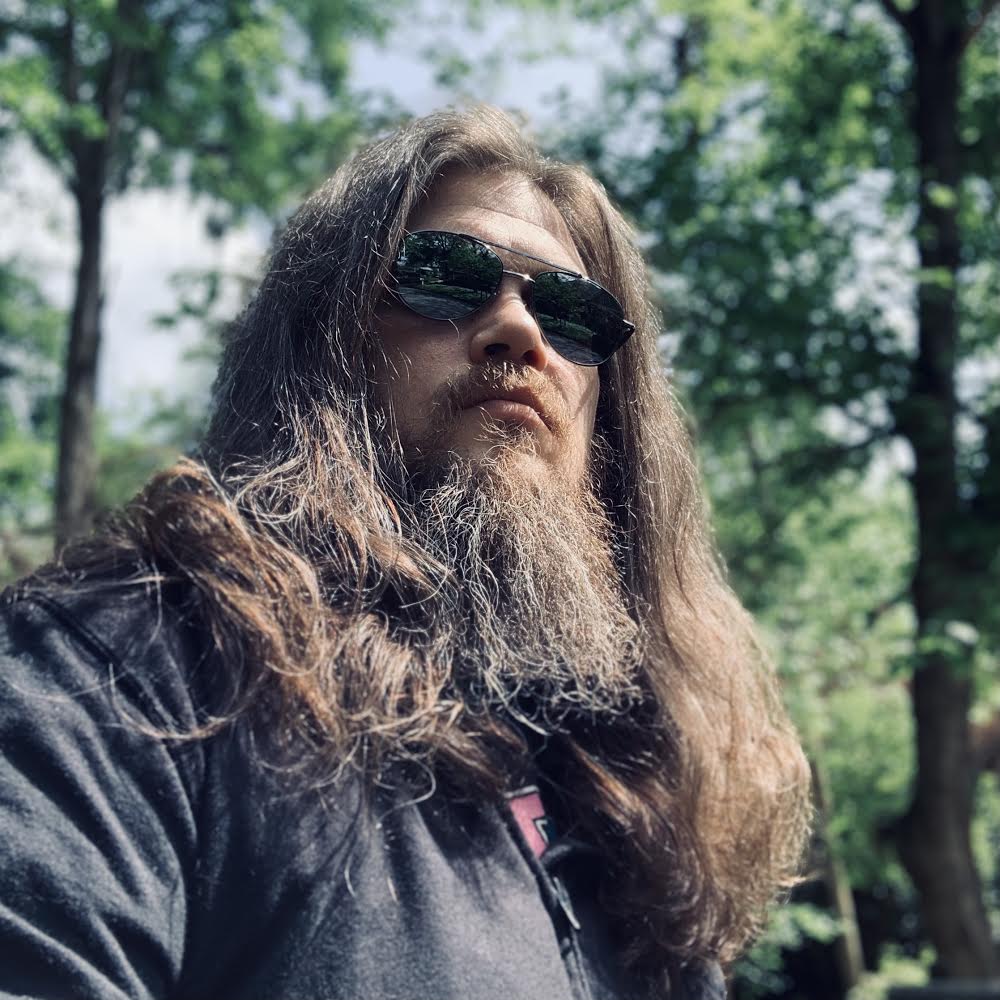Secret Wars - Marvel Comics' first event and its 2015 sequel explained
Avengers: Secret Wars is coming to the MCU. Here's what you need to know about the comic books that will inspire it
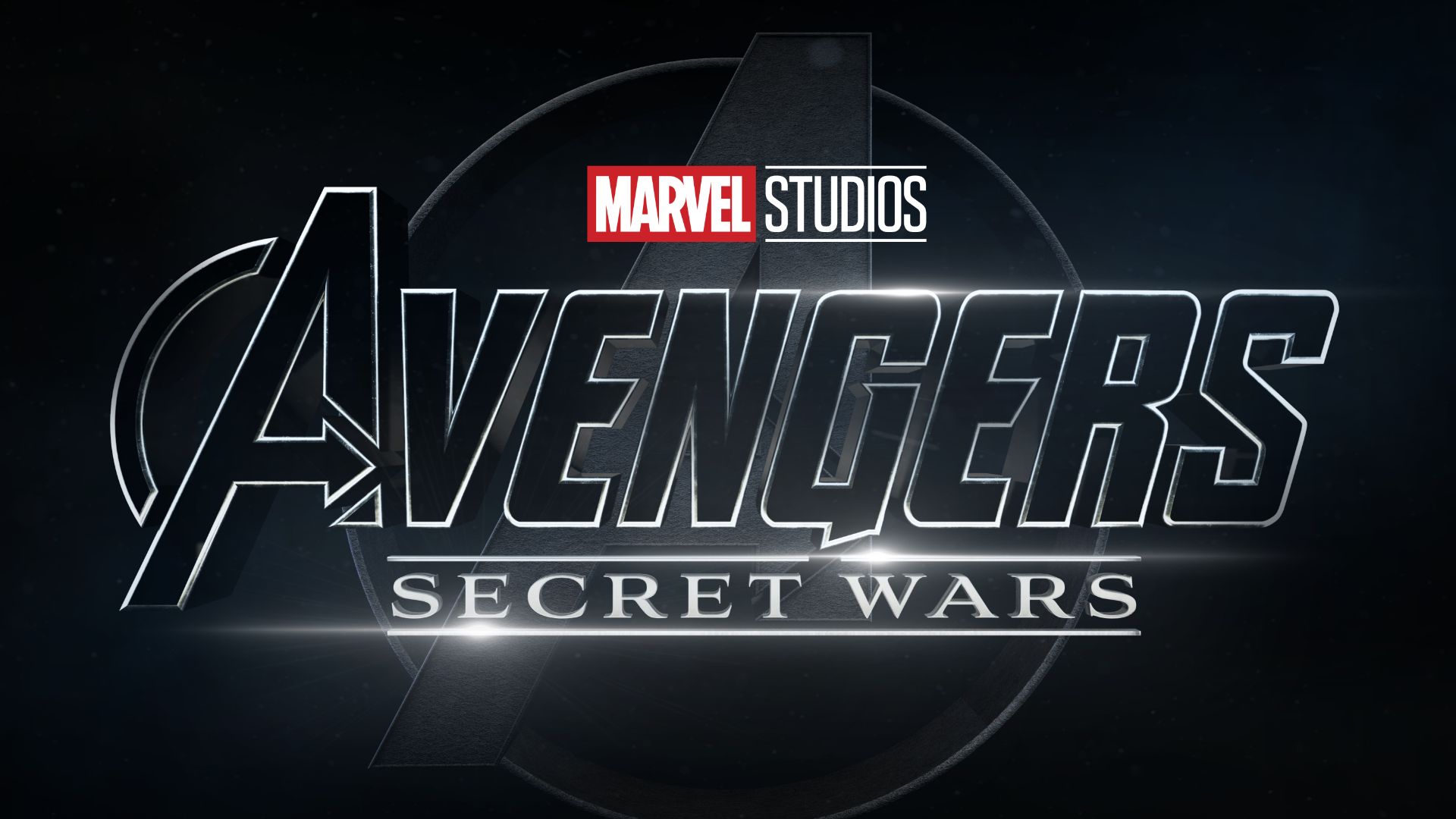
Secret Wars.
In the Marvel Universe, those words are as ominous as DC's Crisis on Infinite Earths and its spin-offs, and now the Marvel Cinematic Universe has invoked them by officially announcing Avengers: Secret Wars.
The words 'Secret Wars' denote a series of events in which Marvel's reality has been rewritten and remade, and many Marvel characters have had their own stories drastically altered along the way.
In both the original 1985 Marvel Super-Heroes Secret Wars and its 2015 Secret Wars spiritual sequel, extra-Multiversal beings set about to monkey around with the very fabric of Marvel's reality, destroying and creating whole worlds in the process.
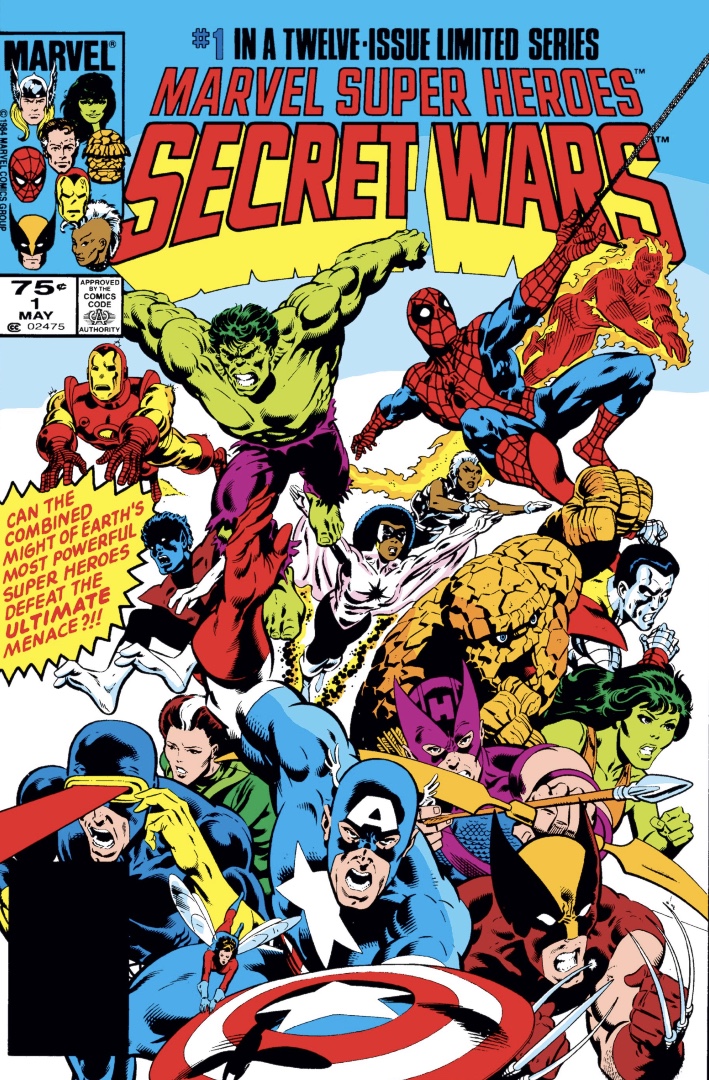
The MCU is diving headlong into its own Multiverse with the burgeoning presence of Kang the Conqueror as a Multiverse-spanning villain, and Kang's many 'Variants,' as well as the current What If…? MCU animated series, which explores alternate worlds. All that, combined with the new MCU lore that Doctor Strange of Earth-838 caused an 'Incursion' - combining two worlds and destroying both - is plenty of evidence for what a cinematic version of Secret Wars will likely be about.
With Secret Wars being adapted to the Marvel Cinematic Universe, we're digging into the legacy of Secret Wars - both the 1985 original and the 2015 spiritual sequel - as well as the stories' effects on the Marvel Universe at large to gain some insight into what it could mean when Secret Wars is brought to the MCU.
Secret Wars (1985)
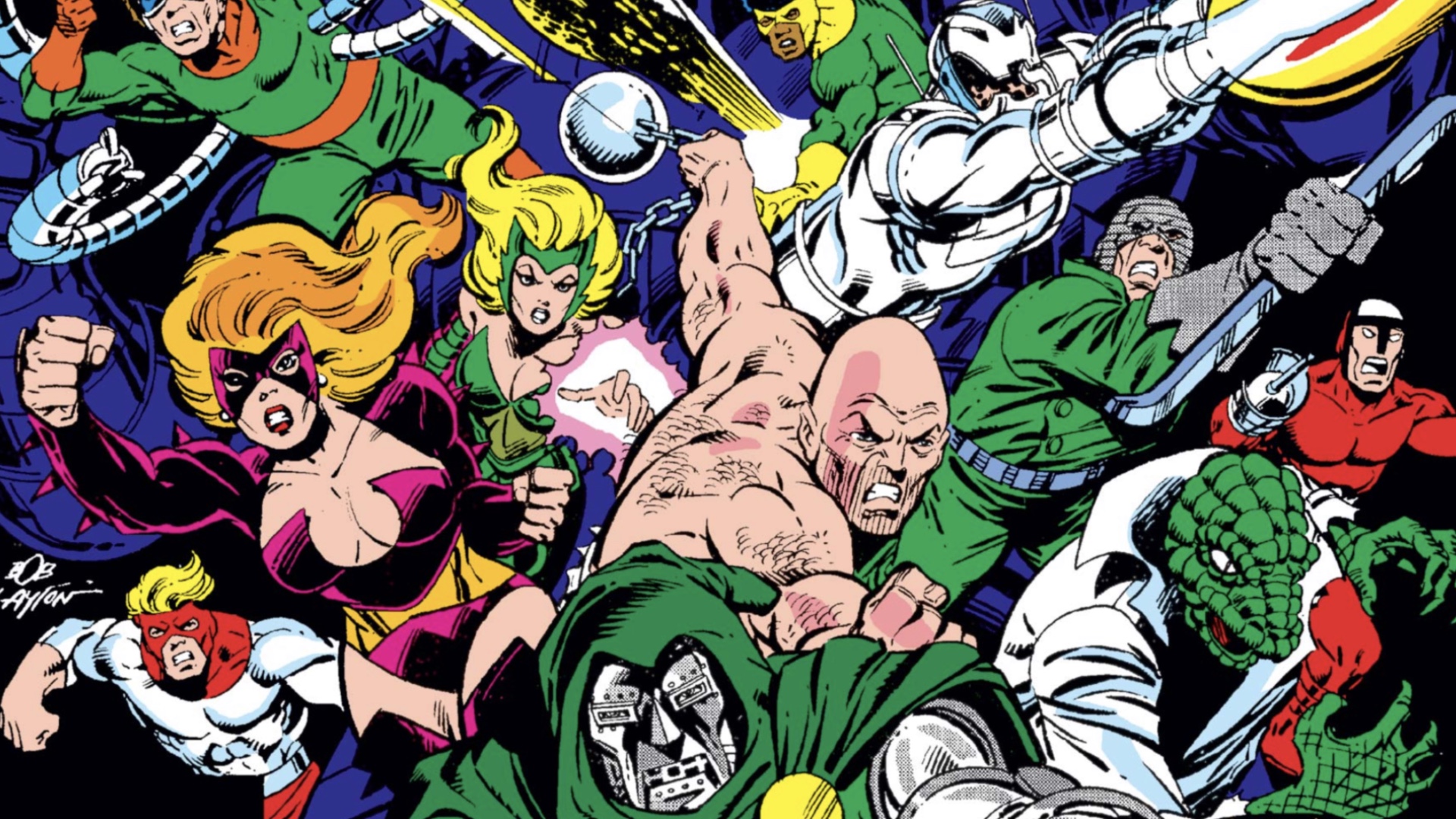
The original Marvel Super-Heroes: Secret Wars limited series ran from 1985-86, and is considered the first official Marvel crossover event title. Written by then editor-in-chief Jim Shooter with art from Mike Zeck and Bob Layton, Secret Wars was created in conjunction with toy manufacturer Mattel as part of a plan to create a toy line of Marvel heroes alongside a comic book that would simultaneously promote the concept in the mainstream Marvel Universe.
Comic deals, prizes and latest news
Get the best comic news, insights, opinions, analysis and more!
To match the concept, Shooter developed a story in which Marvel's most popular heroes and villains are transported to another world to be pitted against each other in combat for the entertainment of a mysterious, all-powerful villain known as the Beyonder.
The Beyonder was an omniscient, nigh-omnipotent cosmic being, later revealed to be just one of a whole race of Beyonders, who became fascinated with the heroes and villains of Earth and their conflicts. Summoning members of the Avengers, the X-Men, the Fantastic Four, Spider-Man, and their foes - most importantly Doctor Doom and Molecule Man - the Beyonder creates a warzone known as Battleworld out of pieces of different parts of Earth and other planets.
Setting both factions against each other, the Beyonder promises the winners that he'll grant their hearts' desires with his wish-like powers.

Throughout the 12-issue story, the Beyonder engineers conflicts between the heroes and villains designed to test not just their mettle, but their sensibilities and morality. Through it all, as the heroes attempt to band together and overcome the villains, Doctor Doom makes plans of his own to overthrow the Beyonder and steal his power, manipulating and commanding his evil cohort into following his schemes.
Central to Doom's plans is Molecule Man, a particularly unique being who acts as a kind of key to every world in the Marvel Multiverse, and who initially gained his reality-bending powers from the Beyonders (though this wasn't yet revealed at the time of the original Secret Wars). Doom plans to use Molecule Man as a battery for a machine to steal the power of the Beyonder, which he then plans to use to conquer the Earth.
In the end, the heroes defeat both the Beyonder and Doctor Doom when Molecule Man turns coat and breaks free of Doom's manipulations. Despite their victory, many of the heroes undergo significant status quo changes as a result of the story.
Most famously, Spider-Man receives a new, all-black costume that turns out to be a living alien symbiote, which tries taking over Peter Parker's mind before bonding with Peter's rival Eddie Brock to become the villainous Venom (who has had some major shifts himself over the years).
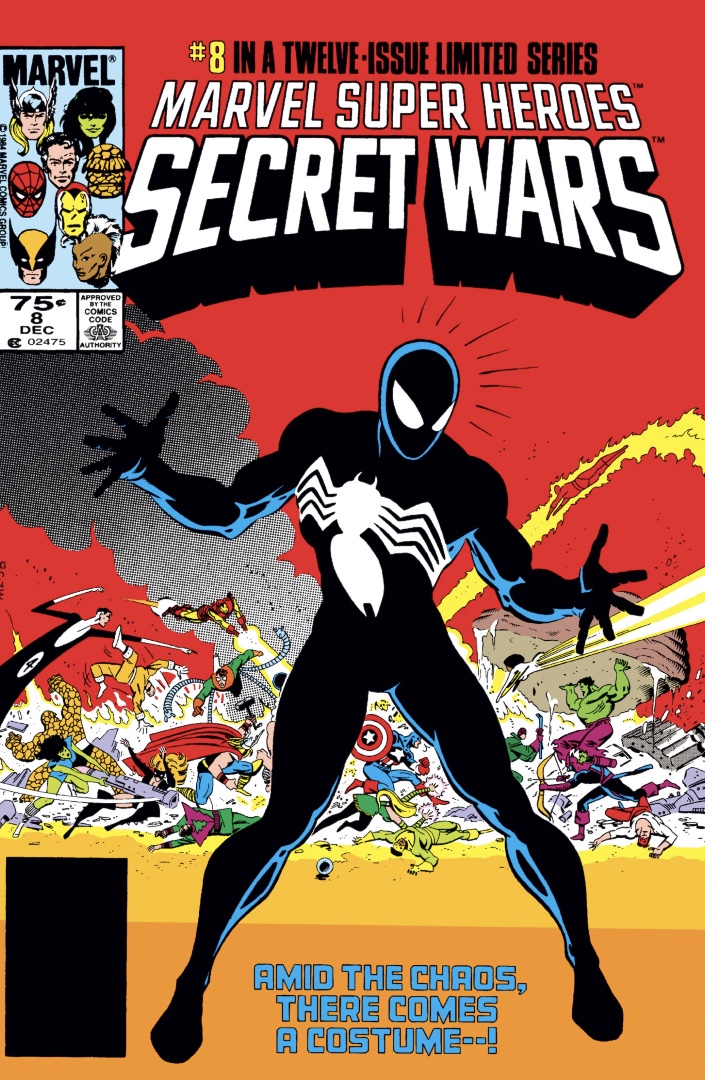
Additionally, Secret Wars led to Ben Grimm not only being able to revert to his human form for a time but also exiting the Fantastic Four to remain on Battleworld, while She-Hulk quits the Avengers to take his place on the FF.
Several new characters are introduced in the story, including She-Hulk's archenemy Titania; Molecule Man's wife Volcana; and Julia Carpenter, the second Spider-Woman. And in a few more changes, the X-Men Colossus and Kitty Pryde end their romantic relationship, while the Hulk becomes increasingly savage due to injuries suffered on Battleworld.
A few years later, a sequel titled Secret Wars II brought the Beyonder to Earth, reprising some of the themes of the original limited series but without the impact the original had on both readers and the Marvel Universe.
The legacy of the original Secret Wars wouldn't come back into the Marvel Universe till decades later.
Secret Wars (2015)
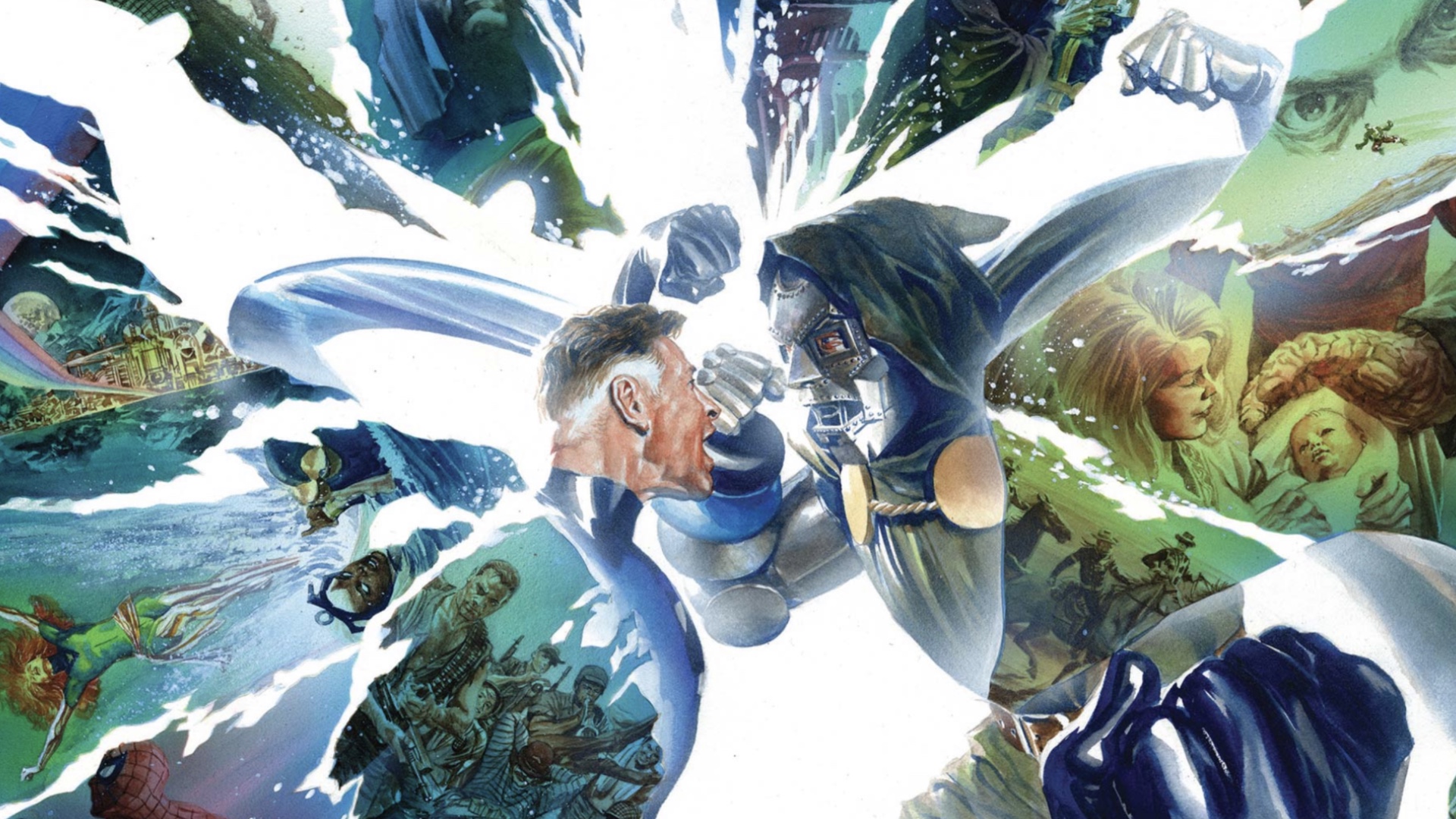
In 2015, to mark the 30th anniversary of the conclusion of the original Secret Wars, Marvel launched a new event that served as a true spiritual sequel to the original, while also doing something Marvel had never done before: destroying and rewriting its entire Multiverse, including making some changes to continuity.
In the year leading up to Secret Wars, writer Jonathan Hickman (who has a new mystery Marvel title coming in 2023) used the titles Fantastic Four, Avengers, and New Avengers to establish a multiversal threat in which different realities were colliding, destroying each other, and shrinking the Multiverse in the process.
The story, 'Time Runs Out,' led directly to 2015's Secret Wars from Hickman and artist Esad Ribic, in which the Beyonders, now established as an entire race of beings who exist in the so-called 'Omniverse' beyond the bounds of Marvel's Multiverse, are destroying the entire Multiverse to restart it as a new experiment in creating their own reality.
To do so, they rely on Molecule Man, the sort of Multiversal 'key' who also played a central role in the original Secret Wars. A unique Multiversal being, Owen Reese/Molecule Man is the only person who exists in basically the exact same context and identity in every world of the Multiverse - a Beyonder-empowered time bomb whose abilities can be used to destroy entire worlds at the will of his alien masters.
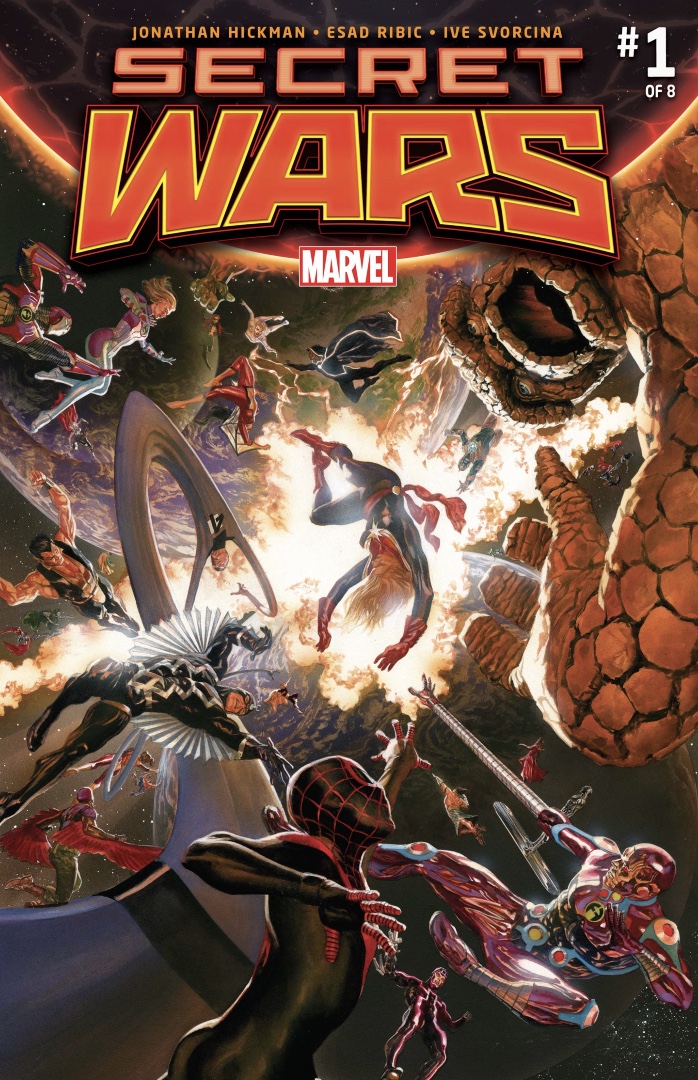
But the Multiverse has one unlikely hope in the form of none other than Doctor Doom, the old adversary of the Beyonder from back in the original Secret Wars. Once again teaming with the Molecule Man of the core Marvel 616 Universe, Doom uses his mastery of science and magic to defeat the Beyonders at the moment of the Multiverse's collapse - only to harness their power to remake the Marvel Universe in his own image as a new Battleworld composed of bits and pieces of dozens of random worlds from the Multiverse.
Aside from a few heroes, including Miles Morales, Peter Parker, and Doom's hated nemesis Reed Richards who were sequestered in an 'ark' that saved them from the destruction, nearly every Marvel character found themselves in totally different identities and status quos on Doom's Battleworld - with Reed's wife Sue Richards becoming Doom's consort, and their children Franklin and Valeria his wards. As a result, Marvel canceled its entire line of titles aside from Secret Wars, replacing all of their titles with stories set in the alternate reality of Battleworld for the length of Secret Wars' publication.
With Doom ruling Battleworld through the power of Molecule Man serving as his battery (much like the original Secret Wars), the heroes who survived being rewritten launch a plan to defeat Doom and restore the Multiverse to its original form - or at least something close to it.
In the end, they are victorious, with Miles Morales and Peter Parker freeing Molecule Man from Doom's clutches, allowing Reed Richards to defeat Doom. Reed and Sue, reunited with each other and with their kids, as well as the students of the Future Foundation, team up with Molecule Man to use his abilities to rebuild the Multiverse itself, staying behind in Battleworld's extra-dimensional space to complete their mission.
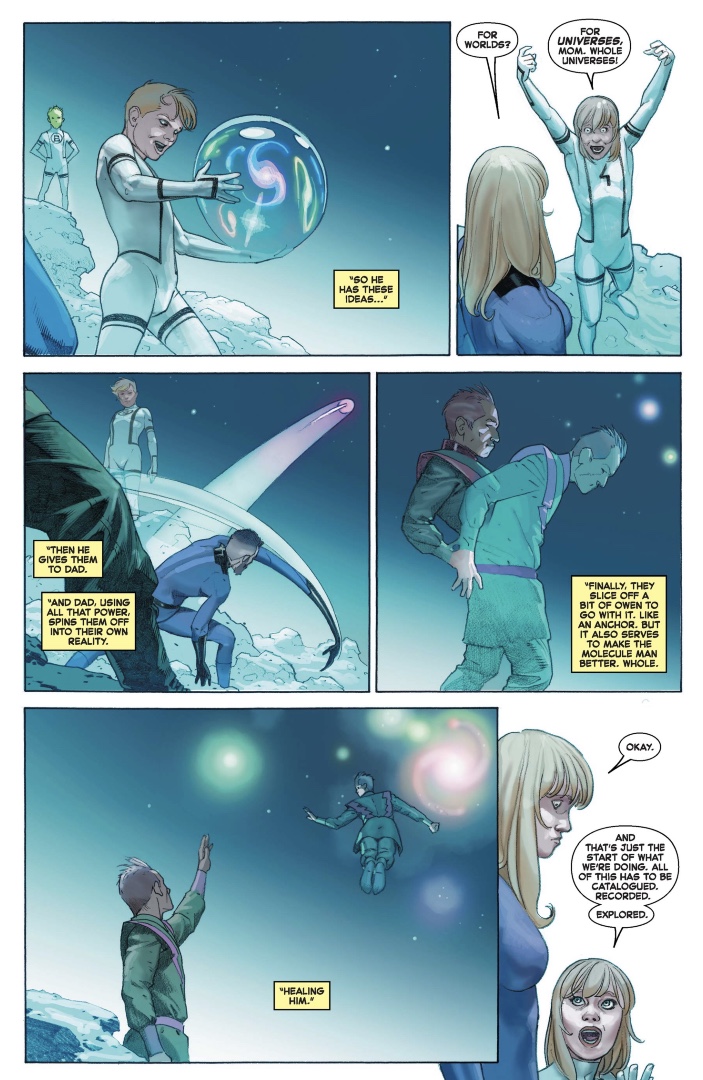
As with the original Secret Wars, 2015-16's Secret Wars led to major status quo upheavals for many Marvel characters. First and foremost, Reed, Sue, their kids, and the Future Foundation students are all presumed dead by the larger Marvel Universe thanks to the after-effects of reality being restored. This leads to the end of the Fantastic Four not just as a team, but as a title, with Marvel outright canceling the Fantastic Four, not to return for several years, marking the first long-term break in the title since the original Fantastic Four #1 launched the Marvel Universe back in 1961.
Additionally, some aspects of Marvel's Ultimate Universe - one of the worlds destroyed in the lead-up to Secret Wars - are incorporated into the mainstream Marvel Universe, specifically Miles Morales and his supporting cast. Miles has since become a second full-time Spider-Man in the core Marvel Universe alongside Peter Parker, with stints on the Avengers and Champions.
The entire Marvel Universe also underwent a time jump between the end of Secret Wars and the start of the renewed Marvel Universe, which led to many small changes and differences from the place readers last saw many Marvel characters.
Doom, who survived Secret Wars, had his once brutally scarred face healed, leading to his brief reformation as an anti-hero, even using the name Iron Man briefly while Tony Stark was out of commission. And the X-Men and Inhumans went to war over a mutant-killing plague caused by the Inhumans' Terrigen Mists.
Overall, though it wasn't technically a full reboot of continuity, Marvel's 2015-16 Secret Wars is likely the closest the publisher will ever come to a Crisis On Infinite Earths style relaunch - at least as long as the current prevailing philosophy remains in place at Marvel (though the publisher isn't shy about retconning stories without rewriting continuity, as seen in 2021's Amazing Spider-Man #73).
Secret Wars in the MCU
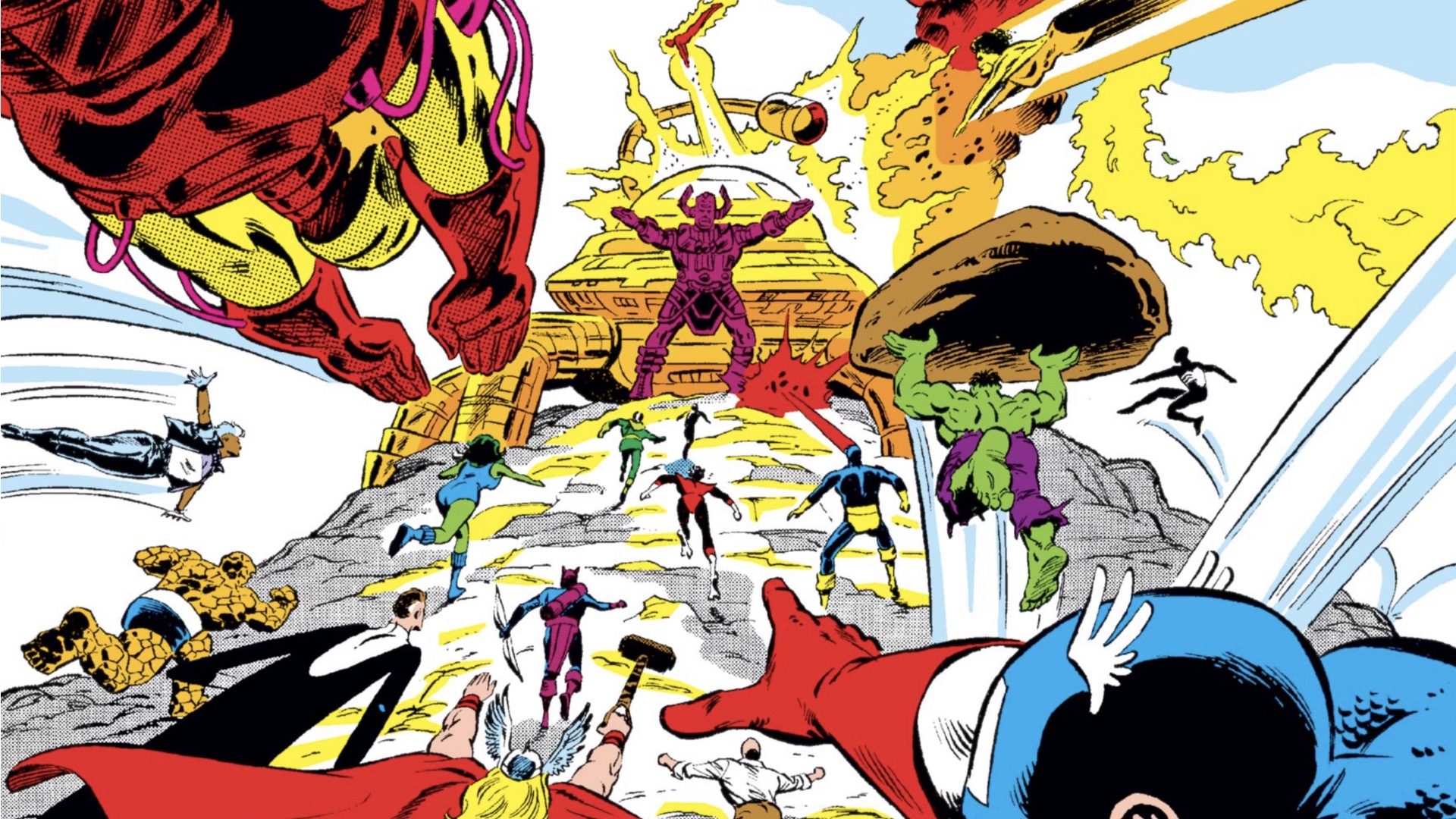
When Secret Wars comes to the Marvel Cinematic Universe, it'll likely be in a form somewhat like the way Infinity War and Endgame adapted the story of Infinity Gauntlet, or how Captain America: Civil War brought in the themes and concept, though not the specifics, of the comic book Civil War.
Still, it's all gotta come down to the Multiverse, the MCU's new toy, which is at the center of the current MCU output, which has been dubbed the 'Multiverse Saga.'
Along with the connections shared by many of Marvel's recent films including Spider-Man: No Way Home and Doctor Strange in the Multiverse of Madness, the advent of the Multiversal Kang the Conqueror as the big villain of Ant-Man and the Wasp: Quantumania seems to hint at major turmoil in the MCU Multiverse, given his origins as the source of the MCU Multiverse's last massive conflict.
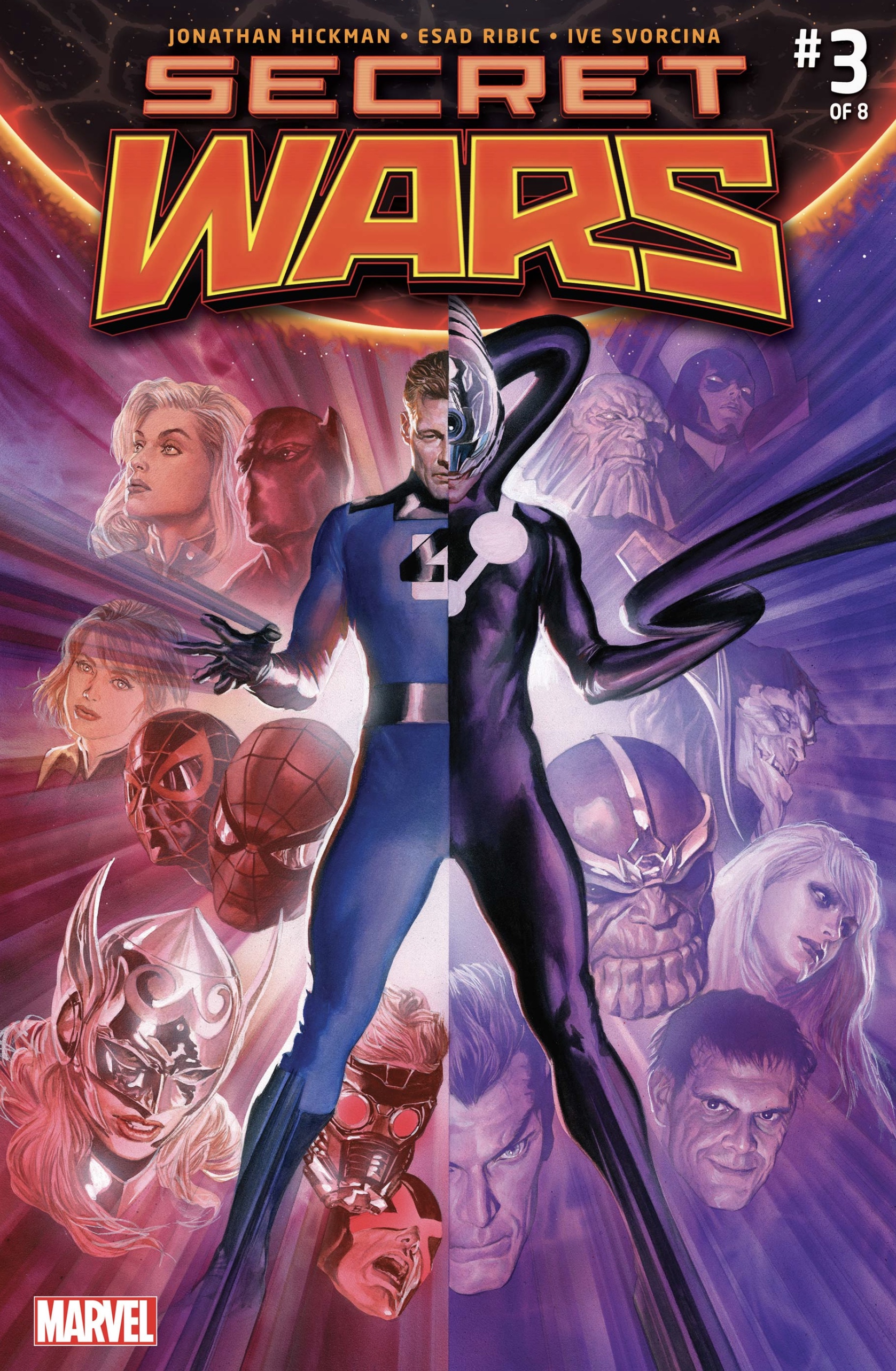
Kang, and whatever Multiversal forces he unleashes, could easily stand in for the Beyonders in an adapted Secret Wars saga that spans numerous realities. While he wasn't one of the driving factors of the story, Kang was part of the faction of villains in the original Secret Wars (and was also one of the few villains included in the original wave of the Secret Wars toyline) - and his own Avengers: Kang Dynasty film will precede Avengers: Secret Wars.
And, especially if a Battleworld-style scenario of different realities butting up against each other were to come to pass, that could provide Marvel Studios the most sought-after storytelling Holy Grail of all - a way to top the every-hero-ever cast of Avengers: Endgame by bringing top MCU stars such as Robert Downey Jr and Chris Evans out of their retirement for one last ride, while also opening a door directly to bring in more heroes from the X-Men and Fantastic Four - both of whom had leaders introduced in Multiverse of Madness.
Adapting Secret Wars could even be a direct conduit to send Peter Parker to Sony's burgeoning Spider-villain spin-off universe.
Will all that happen? Could even Marvel Studios pull something like that off? Well, given that, when it comes to the cinematic universe they've created, Marvel Studios has the omnipotent power of the Beyonders, we wouldn't put it out of their reach.
And we know they're at least going to try.
Secret Wars - both of them - are among the most impactful Marvel Comics events of all time.
I've been Newsarama's resident Marvel Comics expert and general comic book historian since 2011. I've also been the on-site reporter at most major comic conventions such as Comic-Con International: San Diego, New York Comic Con, and C2E2. Outside of comic journalism, I am the artist of many weird pictures, and the guitarist of many heavy riffs. (They/Them)
- Samantha PucEditor, Newsarama
